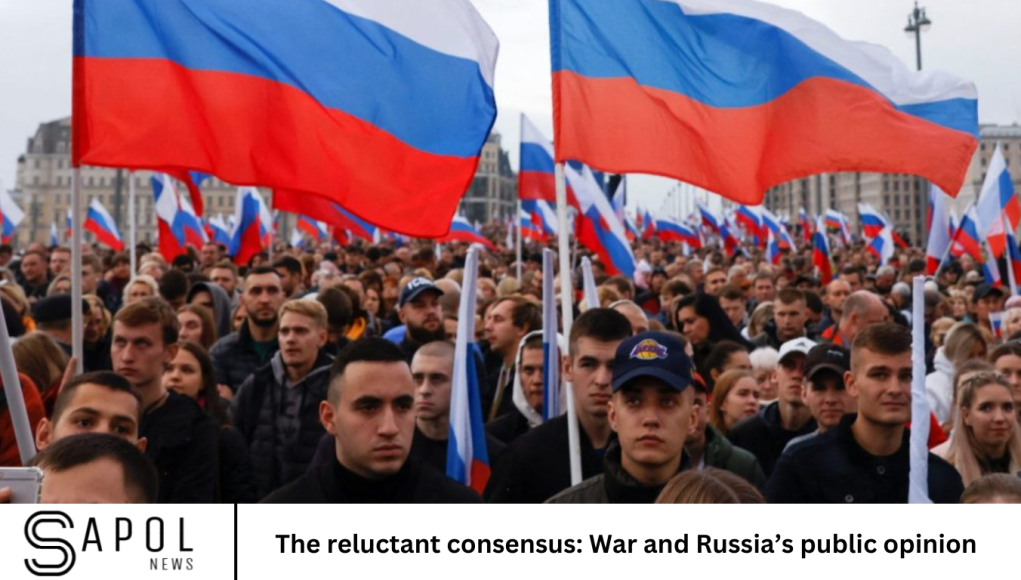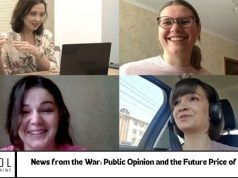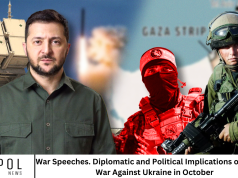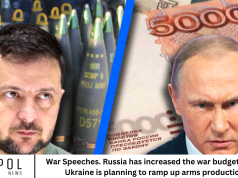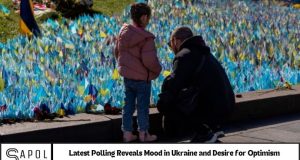Russia’s war of aggression in Ukraine has dominated international attention since its full-scale invasion two years ago and at points since it illegally seized Crimea in 2014. But there is only partial understanding that Vladimir Putin’s revisionist foreign policy poses the greatest short-term challenge to the international order today—and to critical US interests in Europe and beyond. While its economy is unevenly developed, Russia has the world’s largest nuclear stockpile, is a serial aggressor, and its policy is in the hands of an increasingly repressive authoritarian regime.
Russia’s war on Ukraine has reverberated around the world, changing the lives of tens of millions of people in Europe, affecting policies and politics across the transatlantic community, and echoing in China, India, and across the Global South. Kremlin aggression threatens to unsettle security, prosperity, and peace all around the world through its outright rejection of international norms. A better understanding of Russia is crucial to mitigating these risks to the global order.
Policymakers and the public need a new paradigm for understanding Russia. To more effectively address the Russian challenge, we need to reshape the way we think about and understand Russia.
The Atlantic Council’s Eurasia Center’s pathbreaking new series, Russia Tomorrow, aims to accomplish that very task. Through a series of succinct, accessible policy papers, Russia Tomorrow’s expert authors address potential scenarios for Russia’s future, Putin’s web of confidants, the effects of Western sanctions, and much more. Led by Eurasia Center Senior Director John Herbst and nonresident senior fellow Brian Whitmore, Russia Tomorrow delivers insights and policy recommendations from leading experts to enhance our understanding of Russia.
Join the Eurasia Center in reevaluating the conceptions and realities of Russia today so we can better understand and contend with the Russia of tomorrow. For the latest updates on Russia Tomorrow, follow us on Twitter at @ACEurasia, subscribe to our flagship newsletter, and listen to the Power Vertical podcast.
Frequently Asked Question
What is “The Reluctant Consensus” about Russia’s war?
“The Reluctant Consensus” refers to the complex and somewhat contradictory nature of Russian public opinion regarding the war, especially in the context of the invasion of Ukraine. While there is an apparent majority of support for the war due to government propaganda and nationalistic sentiment, there is also significant reluctance, frustration, and uncertainty among ordinary Russians. Many feel conflicted between patriotic duty and the personal cost of the war.
Why do many Russians seem to support the war despite its costs?
Public support for the war in Russia is often linked to state-controlled media that portrays the conflict as a defensive and just struggle. There is also a deep sense of nationalism and historical narratives of Russia as a protector of its people and interests. However, this support can be shallow and contingent on the narrative that the war will protect Russia’s sovereignty and security.
How does Russian public opinion about the war evolve?
Initially, there was strong support for the war due to government narratives, but as the conflict drags on and casualties increase, public opinion begins to show signs of erosion. Reports of economic hardship, the mobilization of soldiers, and sanctions lead many to feel disillusioned. However, open dissent is limited due to the government’s repression of opposition and the stifling of critical discourse.
What factors influence public opinion in Russia regarding the war?
Key factors include government-controlled media, state propaganda, personal experiences of those affected by the war, and the suppression of alternative viewpoints. Additionally, the presence of economic hardships, such as inflation and unemployment, also plays a significant role in shaping how the public feels about the war.
How is dissent suppressed in Russia regarding the war?
The Russian government uses a variety of tactics to suppress dissent, including censorship, arresting activists, intimidating journalists, and banning anti-war protests. Public opposition to the war is often framed as “unpatriotic” or as support for the enemy, and those who speak out face harsh penalties, including imprisonment or exile.
Do Russians feel the war is justified?
While a significant portion of the population may justify the war due to nationalistic rhetoric and fears of foreign threats, others question its legitimacy, especially as the human and economic toll increases. However, fear of government retribution and the overwhelming presence of pro-war messaging from the state make it difficult for many to openly express these doubts.
Is there any indication of potential change in public opinion?
There are signs that, over time, public opinion in Russia could shift as the war continues to have negative effects on daily life. Economic sanctions, casualties, and mounting international pressure may cause some citizens to become more disillusioned. However, any substantial shift in public sentiment may be slow due to the government’s tight control over information and the suppression of dissenting views.
Conclusion
The situation surrounding Russia’s public opinion on the war is characterized by a complex mix of reluctant support, nationalistic sentiment, and underlying frustration. While a majority may outwardly support the government’s stance due to state-controlled media and nationalistic propaganda, many Russians harbor doubts and are increasingly disillusioned by the war’s prolonged economic and human toll. The suppression of dissent and the stifling of open dialogue complicate any meaningful shift in public opinion, but over time, growing hardships may cause cracks in this reluctant consensus. However, the ability of the Russian government to control information and repress opposition means that any shift in public sentiment will likely be slow and difficult to gauge. Ultimately, the war’s ongoing impact on Russia’s population may lead to a growing sense of unease, but the full extent of this shift remains uncertain under current conditions.

